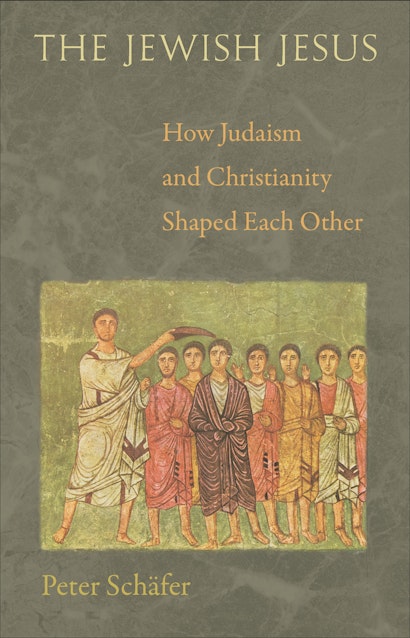In late antiquity, as Christianity emerged from Judaism, it was not only the new religion that was being influenced by the old. The rise and revolutionary challenge of Christianity also had a profound influence on rabbinic Judaism, which was itself just emerging and, like Christianity, trying to shape its own identity. In The Jewish Jesus, Peter Schäfer reveals the crucial ways in which various Jewish heresies, including Christianity, affected the development of rabbinic Judaism. He even shows that some of the ideas that the rabbis appropriated from Christianity were actually reappropriated Jewish ideas. The result is a demonstration of the deep mutual influence between the sister religions, one that calls into question hard and fast distinctions between orthodoxy and heresy, and even Judaism and Christianity, during the first centuries CE.
Awards and Recognition
- Peter Schäfer, Winner of the 2007 Distinguished Achievement Award from the Andrew W. Mellon Foundation
Peter Schäfer is the Ronald O. Perelman Professor of Jewish Studies and professor of religion at Princeton University, where he directs the Program in Judaic Studies. His books include The Origins of Jewish Mysticism and Jesus in the Talmud (both Princeton). He received a Distinguished Achievement Award from the Andrew W. Mellon Foundation in 2007.
"This volume combines several provocative theses. Schäfer suggests that arguments in the Talmud against ostensibly heretical teachings are aimed not only at opponents of the rabbis but also at circles among the ancient rabbis themselves that found such teachings attractive. . . . The author is a highly respected scholar of ancient Judaism, and the present book continues lines of thought that appeared in his earlier writings, including Jesus in the Talmud. This volume's presentation is erudite yet accessible. The arguments against scholars with other views are especially robust and forthright."—Choice
"Schäfer's book is very illuminating and fascinating. The author examines a rich collection of rabbinic texts, which shed light and better understanding on many concepts included in the Old and New Testaments. His emphasis on the geographical distinction between Palestine and Babylonia, in the evaluation of the rabbinic sources is worthy of attention. . . . [T]he book is an excellent presentation of the mutual interaction between the sister religions and deserves an important place amongst the studies about early Judaism and Christianity."—Miroslaw S. Wróbel, Biblical Annals
"There have been a number of revelatory books in recent decades on the relations between early Christianity and Judaism, especially on how each influenced the other. This book by Peter Schafer . . . is among them."—Glenn W. Olsen, European Legacy
"Watching Peter Schäfer explicate Jewish and Christian texts is like watching a great restorer work on a fresco damaged by time, wind, and water. Blurred outlines come into focus, dull colors become brilliant, and suddenly a forgotten story of exchange between the two religions comes back to dramatic life. This is great scholarship, applied to a subject so complex and difficult that nothing less could do it justice."—Anthony T. Grafton, Princeton University
"The Jewish Jesus is the natural sequel to Peter Schäfer's widely acclaimed Jesus in the Talmud. Against overly simplistic conceptions of Christian influences on Judaism, Schäfer posits a dynamic dialogue between two not yet clearly demarcated communities. Christianity grew out of Judaism, but Judaism also developed and changed in constant exchange with and differentiation from Christianity. Schäfer's fascinating and highly readable book offers an important change of perspective from traditional religious histories and deserves many readers."—Günter Stemberger, author of Jews and Christians in the Holy Land: Palestine in the Fourth Century
"Schäfer's thought-provoking book challenges readers to reimagine the relationship of early Judaism and Christianity and the theological matrices in which they developed. Must reading for students and scholars alike."—Burton L. Visotzky, Jewish Theological Seminary
"This excellent and important book will be seized on eagerly and read with attention. Peter Schäfer makes his argument with great clarity and a formidable command of the sources, building his case from close readings of the texts. The scholarship is impeccable."—Philip Alexander, professor emeritus, University of Manchester


